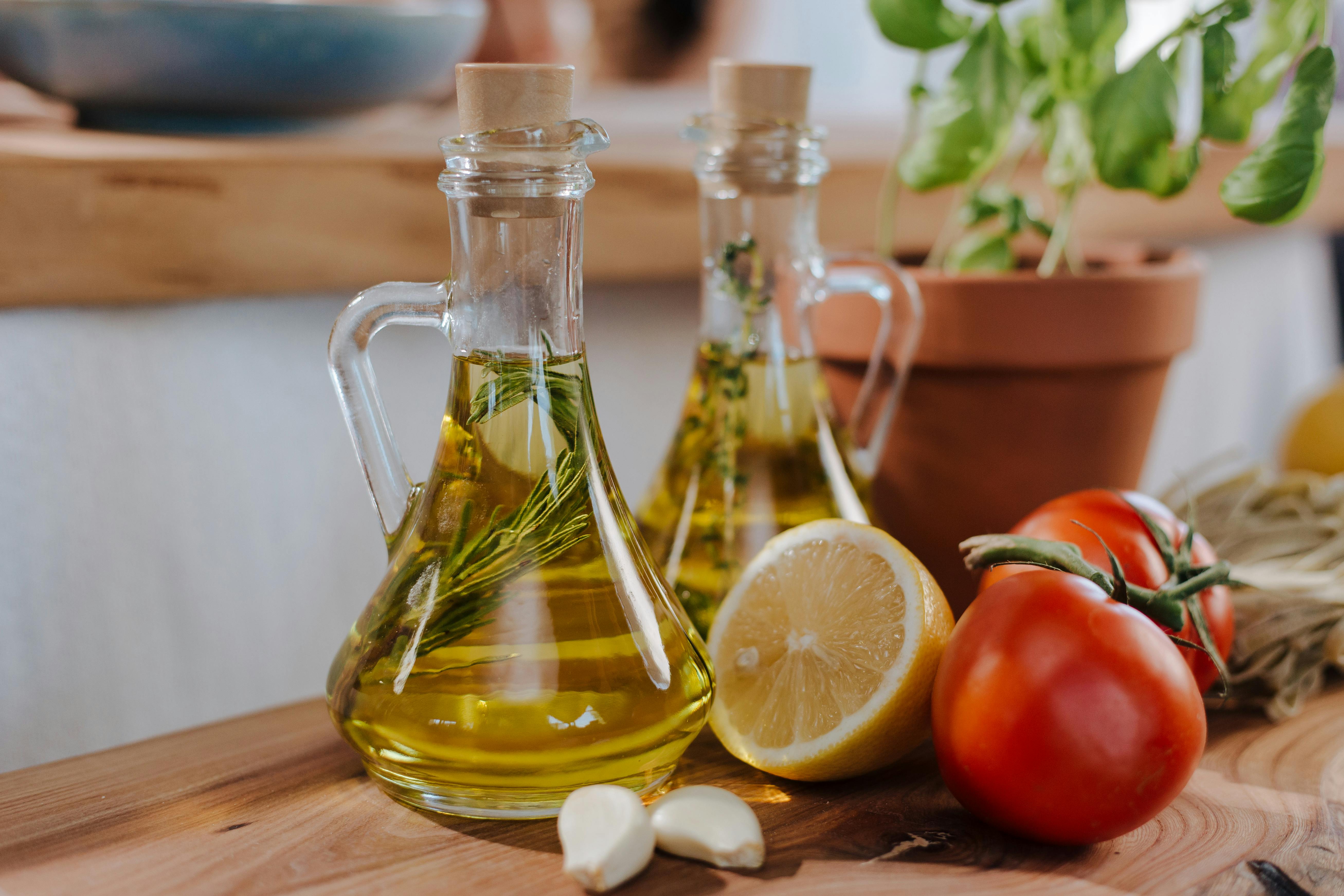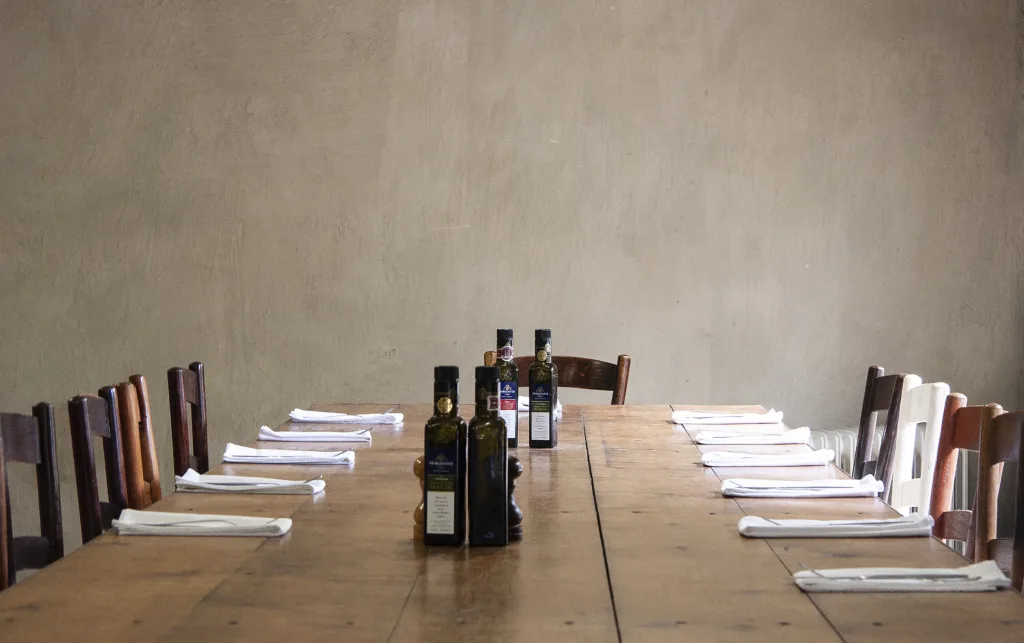Do you ever find yourself wondering whether it’s safe to use olive oil after its expiration date has passed? Have you ever encountered olive oil that has been sitting in your pantry for a long time, and aren’t sure if it’s still good to use? If so, this article is for you. Here we’ll discuss how long olive oil can last past its expiration date and what signs you should look out for when determining if the oil is still safe to consume. We’ll also provide tips on how to properly store olive oil so that it lasts longer and stays fresh.
The shelf life of olive oil after its expiration date is generally around 6-9 months, provided it has been stored properly.
Is it Safe to Consume Olive Oil After Expiration Date?
Olive oil is a staple in many kitchens and is widely used for cooking and baking. It is also an important ingredient in many popular dishes. But like other food products, olive oil has an expiration date. This raises the question: Is it safe to consume olive oil after its expiration date?
The short answer is yes, you can still safely consume olive oil after its expiration date. Although the quality of the oil may not be as good as when it was fresh, consuming expired olive oil will not cause any serious health issues. In fact, some experts suggest that you can use expired olive oil for up to three years after its expiration date without any noticeable changes in taste or quality.
However, there are a few things to keep in mind when using expired olive oil. First and foremost, olive oil should be stored properly to maintain its freshness and flavor. It should be stored in a cool, dark place away from direct sunlight and heat sources. Additionally, you should make sure to check the expiration date on the bottle before using it, as expired oils may contain harmful bacteria or mold that can cause food poisoning if ingested.
It is also important to note that while it is safe to consume expired olive oil, it may not have the same flavor or aroma as when it was fresh. The flavor of olive oil can become bitter and rancid over time due to oxidation caused by exposure to air and light. This means that while it is safe to consume expired olive oil, you may not enjoy the taste or smell as much as when it was freshly purchased.
In conclusion, while consuming expired olive oil may not cause any serious health issues, it is best practice to check its expiration date before use and make sure that you store it properly for maximum flavor and quality.
Environmental Factors
The shelf life of olive oil is affected by a variety of environmental factors. Exposure to heat, light, and oxygen can all decrease the shelf life of olive oil. If stored in an environment that is too hot, the olive oil can become rancid quickly. Additionally, if it is exposed to direct sunlight for an extended period of time, it can cause the flavor and aroma to change. Oxygen can also permeate the bottle and cause oxidation, leading to a bitter taste and odor. To preserve the shelf life of olive oil, it should be stored in a cool, dark place where there is little exposure to oxygen.
Production Method
The production method used during the extraction of olive oil has an effect on its shelf life as well. Olive oils which have been extracted using chemical solvents tend to have a shorter shelf life compared to those that are cold-pressed or mechanically extracted. Cold-pressed and mechanically extracted oils are generally purer and contain fewer contaminants than chemically extracted oils, making them more stable over time.
Type of Olive Oil
The type of olive oil also affects its shelf life. Extra virgin olive oil has a shorter shelf life than other types because it contains more polyphenols which make it more susceptible to oxidation. Refined or light olive oils generally have a longer shelf life because they are processed in order to remove some of these polyphenols which make them less prone to spoilage.
Storage Conditions
Finally, storage conditions play an important role in determining the shelf life of olive oil as well. Olive oil should be stored in airtight containers at room temperature or slightly lower temperatures for optimal longevity. Lightproof containers are recommended as sunlight can break down the polyphenols in the oil and lead to rapid deterioration over time. Additionally, containers that are made from dark glass or metal are preferable since they provide better protection against light damage than clear glass bottles.
How to Prolong the Shelf Life of Olive Oil
Olive oil is a popular cooking oil, valued for its flavor and health benefits. But it can be expensive, so it’s important to get the most out of it. One way to do this is to make sure that the olive oil stays fresh and flavorful for as long as possible. To ensure that olive oil stays fresh, there are several steps you can take.
The first step is to store the olive oil in a cool, dark place. This will help keep the flavor and aromas locked in and protect it from light, heat, and oxygen. A pantry or kitchen cupboard are ideal places to store olive oil. Olive oil should also be stored in a dry place – moisture can cause olives to spoil more quickly.
It’s also important to keep the bottle tightly sealed when not in use. This will help keep out air and moisture, both of which can speed up spoilage. If you’re using a large container of olive oil, make sure that only clean utensils are used when dispensing it into smaller containers for easier use.
Finally, always check the expiration date on the bottle before using the olive oil and discard any that has passed its expiration date. Keeping these simple tips in mind will help you prolong the shelf life of your olive oil and get maximum value from your purchase!
Differentiating Between Good and Bad Quality Olive Oil
Olive oil is known for its many health benefits, but not all olive oil is created equal. Knowing the difference between good and bad quality olive oil can help you make the best choices for your health. The quality of an olive oil is determined by a variety of factors, such as its processing methods, the type of olives used, and the harvest time.
To start with, it is important to know that olive oil can come in different grades or qualities. Extra virgin olive oil is considered to be the highest grade, followed by virgin and pure or light. Extra virgin olive oil should have a mild flavor and no defects in scent or taste. It should also have a high level of antioxidants, which are beneficial for overall health.
When choosing an olive oil, look for one that has been cold-pressed using traditional methods. This method preserves the natural flavor and aroma of the olives while extracting all the beneficial nutrients. Additionally, opt for an organic product that has been grown without pesticides or other chemicals which can alter its taste and nutritional value.
The type of olives used also makes a big difference in determining quality. Choose an olive oil made from a blend of different types of olives to get a fuller flavor profile as well as more beneficial nutrients such as monounsaturated fatty acids (MUFAs). Finally, make sure to check the harvest date on your bottle – freshness matters when it comes to olive oils!

Significance of Properly Storing Olive Oil
Storing olive oil properly is essential to preserving its flavor, aroma, and nutritional value. Olive oil is highly susceptible to oxidation and is sensitive to light, heat, and air. When exposed to these elements, the oil will begin to break down, resulting in a rancid taste and smell. This can reduce its nutritional value significantly and make it unsafe for consumption. Proper storage of olive oil can help preserve its quality for up to two years.
Olive oil should always be stored in a dark place at room temperature or lower. The best way to store olive oil is in a dark glass bottle or tin container with a tight seal. This will prevent the olive oil from coming into contact with air or light and also help keep any moisture out. It is important not to store olive oil near heat sources such as an oven or stovetop as this will cause it to spoil more quickly. It is also important not to store olive oil near strong-smelling foods such as onions and garlic as this can affect its flavor.
It is also important to remember that once opened, olive oil should be used within one month for optimum flavor and freshness. If the bottle has been opened but not all of the contents used, it should be transferred into a smaller container with an airtight lid so that it does not come into contact with air or light. It should then be stored in the refrigerator until ready for use.
Proper storage of olive oil is essential if you want to get the most out of your purchase. By ensuring that it is kept away from sources of heat, light, air, and strong-smelling foods you can ensure that your olive oil remains fresh and retains all of its nutritional benefits for longer periods of time.
Different Types of Olive Oils and Their Shelf Lives
Olive oil is a healthy cooking oil that is derived from olives. It is widely used in cooking, baking, and as a salad dressing. There are different types of olive oils available on the market, each with its own unique characteristics and shelf life. The most common types of olive oil are extra virgin olive oil (EVOO), pure olive oil, light olive oil, and pomace olive oil.
Extra virgin olive oil (EVOO) is the highest quality and most expensive type of olive oil available. It has a fruity flavor and a low acidity level. EVOO has the highest amount of antioxidants and polyphenols compared to other types of olive oils, making it an excellent choice for use in salads or to drizzle over cooked dishes. Its shelf life is 12 – 18 months when stored in a cool, dark place away from direct sunlight.
Pure olive oil is made by combining refined oils with extra-virgin or virgin oils. It has a mild flavor but lacks the antioxidants and polyphenols found in extra-virgin oils due to being highly processed. It can be used for sautéing or stir-frying vegetables but should not be used for salad dressings or drizzling over cooked dishes due to its bland taste. The shelf life for pure olive oil is about 18 – 24 months if stored properly in a cool, dark place away from direct sunlight.
Light olive oil is made by blending refined oils with extra-virgin or virgin oils to create an ultra-light version of pure olive oil. This type of oil has been further processed so it doesn’t have any flavor or aroma but it still retains some healthy benefits such as omega-3 fatty acids and antioxidants compared to regular vegetable oils like canola or sunflower. Its shelf life is up to two years when stored properly at room temperature away from direct sunlight or heat sources such as stoves and ovens.
Pomace Olive Oil comes from pressing the “pomace” which are the solids left after pressing olives for their juice and then extracting the remaining oil by using chemical solvents like hexane. This type of oil has little flavor but it does contain some antioxidants which makes it suitable for general cooking purposes like sautéing vegetables or frying food items such as fish fillets. Its shelf life is 12 – 18 months when stored properly at room temperature away from direct sunlight or heat sources like stoves and ovens.
Overall, different types of Olive Oils vary in terms of quality, taste, health benefits, and shelf lives depending upon how they are processed and stored properly at home or commercially in warehouses before they are sold on the market to consumers worldwide.
Check the taste
One of the best ways to identify a bad-quality olive oil is to taste it. If you’re familiar with good-quality olive oil, you’ll immediately be able to tell if the olive oil you’re tasting is not up to par. If it has an unpleasant, rancid taste or an off-putting smell, then it’s likely of poor quality. It should have a mild, pleasant taste and a bright green color. To ensure you get a good sample, be sure to purchase only from reputable suppliers.
Check the packaging
Another way to identify bad-quality olive oil is to look at the packaging. Many producers of low-quality olive oils will use cheaper packaging materials that are prone to breakage or leakage. This can lead to oxidation and spoilage of the oil over time. Additionally, look for signs of tampering or signs that the bottle may have been refilled with lower quality oils. If the packaging looks suspicious in any way, then it’s best to avoid purchasing it.
Pay attention to price
When purchasing olive oil, always pay attention to price. Good-quality extra virgin olive oils tend to be more expensive than other varieties due to their higher levels of antioxidants and polyphenols. If you find an unusually low price for a high-end brand of extra virgin olive oil, then there’s a good chance that it’s not authentic and could be low in quality.
Research the producer
Finally, researching the producer can help you identify bad-quality olive oils. Look for reviews and ratings from customers who have purchased their products in the past and make sure they have a good reputation among other industry experts. Additionally, look for certifications from organizations such as The International Olive Oil Council which certify that products meet certain standards for quality and purity before they are sold on store shelves.

Conclusion
Overall, it is important to understand that olive oil does not last forever, no matter the expiration date. It is best to pay attention to the taste and scent of olive oil once it has been opened, as this can be a good indicator of whether the oil is still good or should be discarded. Additionally, different types of olive oil have different shelf lives so it is important to research which type you are using and how long it will last after opening.
Olive oil is a great addition to any kitchen pantry and can be used in many recipes. With proper storage and an understanding of how long it lasts after its expiration date, you can ensure that your olive oil stays fresh for as long as possible.
